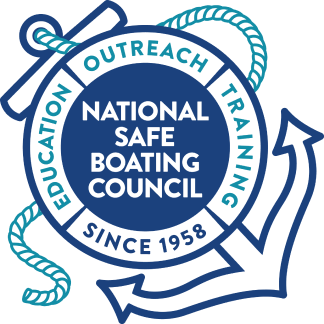Americans have flocked to outdoor recreation among COVID restrictions, and recreational boating is experiencing unprecedented growth. With increased participation and new boaters hitting the waterways, safety and education are paramount to enjoying a day on the water. For the annual celebration of National Safe Boating Week, held May 22 – 28, 2021, the National Safe Boating Council provides the recipe for keeping your adventure a safe one.
“The simplest way to ensure your safety on the water is to wear a U.S. Coast Guard approved life jacket that’s the right size for you,” said Yvonne Pentz, communications director of the National Safe Boating Council. “Life jackets are not just for youth, with 86% of recreational boating drowning victims not wearing life jackets.”
National Safe Boating Week is the annual kick-off of the Safe Boating Campaign, a global awareness effort that encourages boaters to make the most of their boating adventure by being responsible. It is led by the National Safe Boating Council in partnership with the U.S. Coast Guard.
There are many U.S. Coast Guard-approved life jackets for different activities like boating, fishing, paddling, or hunting. Many new innovations and styles are comfortable, lightweight, and are now part of necessary boating gear.
The National Safe Boating Council recommends these tips for boaters:
- Take a boating safety course. Gain valuable knowledge and on-water experience in a boating safety course with many options for novice to experienced boaters. 70% of deaths were on boats where the operator had no boating safety instruction.
- Check equipment. Schedule a free vessel safety check with local U.S. Coast Guard Auxiliary or U.S. Power Squadrons to make sure all essential equipment is present, working and in good condition.
- Make a float plan. Always let someone on shore know the trip itinerary, including operator and passenger information, boat type and registration, and communication equipment on board.
- Wear a life jacket. Make sure everyone wears a life jacket – every time. A stowed life jacket is no use in an emergency.
- Use an engine cut-off device – it’s the law. An engine cut-off device, or engine cut-off switch, is a proven safety device to stop the boat’s engine should the operator unexpectedly fall overboard.
- Watch the weather. Always check the forecast before departing on the water and frequently during the excursion.
- Know what’s going on around you at all times. Nearly a quarter of all reported boating accidents in 2019 were caused by operator inattention or improper lookout.
- Know where you’re going and travel at safe speeds. Be familiar with the area, local boating speed zones and always travel at a safe speed.
- Never boat under the influence. A BUI is involved in one-third of all recreational boating fatalities. Always designate a sober skipper.
- Keep in touch. Have more than one communication device that works when wet. VHF radios, emergency locator beacons, satellite phones, and cell phones can all be important devices in an emergency.
“A confident boater is safer and will have a more enjoyable experience on the water,” said Peg Phillips, executive director of the National Safe Boating Council. “Our Boat Control On-Water Training curriculum teaches boaters close quarter maneuvers such as docking and pulling up to the fueling dock.”
The National Safe Boating Council partners with BoatUS Foundation and Carefree Boat Club to provide on-water boat handling training nationwide.
The Safe Boating Campaign is produced under a grant from the Sports Fish Restoration and Boating Trust Fund and administered by the U.S. Coast Guard. The campaign offers a variety of free and paid resources to support local boating safety education efforts. Learn more at www.safeboatingcampaign.com.
###
Media Contact:
Yvonne Pentz, National Safe Boating Council, ypentz@safeboatingcouncil.org, 440-670-1294


